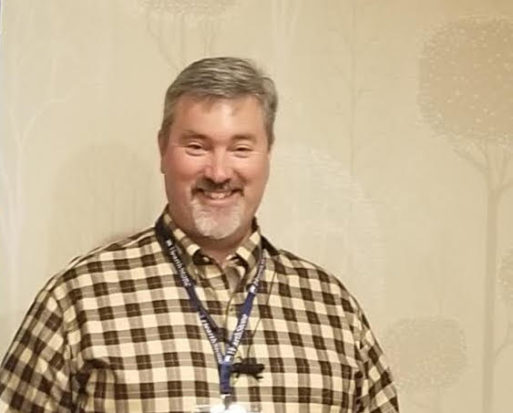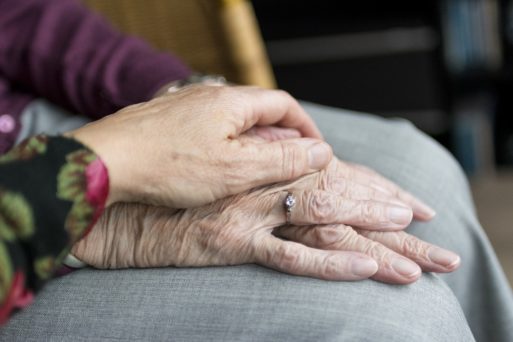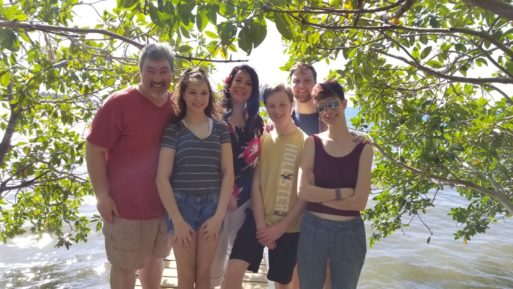
Welcome to Part Two of our interview with Paul Seideman, the president of the National Guardianship Association (NGA). The NGA is a nonprofit organization that sets standards and ethical guidelines for guardians, conservators, and fiduciaries in the United States. Paul has been on the board of directors for the NGA since 2013 and began serving as its president this year.
Editor’s Note: This interview has been edited for length and readability.
Colleen Ferguson: Can you tell me about the certification program offered by the National Guardianship Association?
Paul Seideman: That’s a good question! There’s a lot of confusion about the National Guardianship Association (NGA) and the Center for Guardianship Certification — they are separate organizations. The Center for Guardianship Certification (CGC) focuses specifically on providing certification and testing for guardians across the country, but only in states that require it.
The National Guardianship Association (NGA) provides the education and training component, whereas the CGC provides the certification. A good analogy would be that the CGC acts as a kind of “Bar Association.” If someone has a concern or a complaint about a certified guardian, they can file their complaints with the CGC, which will conduct an investigation and ultimately can take action against that guardian either by suspending or pulling their certification.
Colleen: What does it mean for the public if someone is a “Certified Guardian?”
Paul: If someone is a national certified guardian or a national master guardian, then there is a much greater assurance the person has the knowledge, experience, and training to understand how to implement guardianship in ways that are in compliance with the standards of practice that the NGA promotes.
Certified guardians have gone through background checks, testing, and are also required to keep up with education and training to maintain that certification.

Colleen: If someone is interested in becoming a guardian, what should they know?
Paul: We welcome all people who are interested in acting as a guardian. It is a wonderfully rewarding and challenging career path. It’s an amazing blessing to be able to provide support and decision-making assistance for people who are unable to do so on their own and intercede on behalf of vulnerable people who may blossom as a result of having a positive guardian put in place with them.
But guardianship is hard work. It involves long hours — it’s not a 9-to-5 job — and it is subject to criticism from almost all quarters. In many cases, it requires a lot of self-confidence and a lot of wisdom, which is probably why most guardians who come into this as a career are oftentimes in their 40s, 50s, and even older.
Colleen: What do you recommend for those who have had the responsibility of being a guardian thrust upon them for reasons outside of their control?
Paul: NGA has a great deal of information available for help and support. We have training and education available on our website for family member guardians for a low cost, and we also have affiliates in more than half the states in the country. These are state-level organizations who also provide training, education and networking opportunities.
We strongly suggest that family guardians contact the affiliate in their state (if there is one), in order to be connected with other family guardians and professional guardians who can help give them guidance and input and be available as a resource to them. Just knowing you’re not alone can make a huge impact.

Paul Seideman and family
Colleen: I understand the NGA is also involved in advocacy. Can you tell me more about that program?
Paul: Yes, absolutely. We are interested in promoting standards of practice and certification in every state. Our advocacy program helps members and anyone who is interested to be part of our grassroots effort contact state legislatures more easily. The goal is to open up the conversation about guardianship legislation to support changes and reform that we believe are necessary, and also voicing our opinion on guardianship laws that might be missing the mark.
Colleen: In a way, it seems like the National Guardianship Association seeks to educate both guardians and state governments.
Paul: Yes, that’s true. We have members who testify at legislative hearings, and we also meet with state court administrators to talk about court systems, reporting systems, data collections, guardian supervision, and anything else that we can do to promote good guardianship.
Colleen: Very interesting. And what are you hoping to accomplish for the NGA in the coming years?
Paul: Ideally, we’d like to see an active affiliate in all 50 states. We would also love to have the ability to have certification as a requirement in all states because again, we believe that this is the best opportunity for the public to have confidence in guardians as people who are trustworthy, independent, and acting in the best interest of the person they support. Apart from that, we hope to continue to grow our network and provide support and connection for all people who find themselves or choose to be in these positions of care.
Colleen: Thank you so much for speaking with us, Paul. I’ve learned more than ever about guardianship, and I’m sure our audience will find it incredibly valuable.
If you missed Part One of our interview with Paul Seideman, catch up here.

 How Does Someone Become a Certified Guardian or Find Support as a Family Guardian?
How Does Someone Become a Certified Guardian or Find Support as a Family Guardian?


 Our Annual Seven Holiday Gifts for Someone Who Is Grieving, 2024 Edition
Our Annual Seven Holiday Gifts for Someone Who Is Grieving, 2024 Edition
 “Making Mobiles” by Karolina Merska
“Making Mobiles” by Karolina Merska
 “Hands Up to the Sky” by Michael Franti & Spearhead
“Hands Up to the Sky” by Michael Franti & Spearhead














